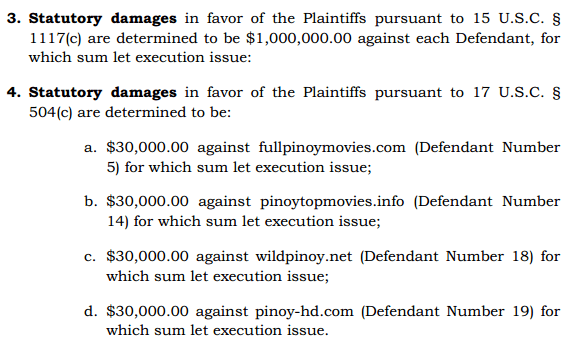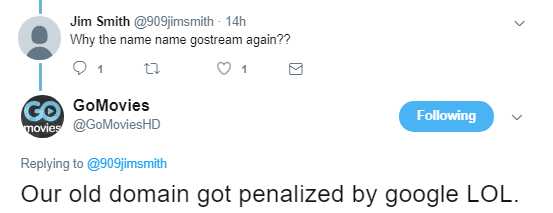That Horrible Sinking Feeling When You See a Pirate’s Dark Future
dimanche 16 juillet 2017 à 10:03 In the very early days of BitTorrent, making a list of decent file-sharing sites wasn’t particularly difficult. There was a list of ten or so that everyone knew, with a couple of dozen sundry others that mattered to the people who ran them and few others.
In the very early days of BitTorrent, making a list of decent file-sharing sites wasn’t particularly difficult. There was a list of ten or so that everyone knew, with a couple of dozen sundry others that mattered to the people who ran them and few others.
Then, out of nowhere, everything exploded. Soon it was impossible to keep up, sites appeared like mushrooms overnight and the lists got longer and longer. Today there isn’t a comprehensive list anywhere that can claim to cover them all, although some anti-piracy outfits think they’re close.
With that in mind, whenever a new and significant site or service appears seemingly out of nowhere, it’s always of interest to us at TF. With so many other pirate competitors around, how did this one manage to burst to the top so quickly? And, of course, when is it likely to do something newsworthy and how can we get in touch?
Getting information often involves asking around contacts built up over the years but everyday Internet tools also do a great job. After seeing where a site is hosted (special thanks to Cloudflare for making that more difficult), one of the early ports of call is a basic domain WHOIS. In the early days, these were often a goldmine. Today, thanks to increased security awareness, they’re much less useful.
But not always.
A couple of months ago it became apparent that a new streaming site/service was getting a lot of attention on various discussion platforms. The people who tried it said it was good, one of the best they’d seen actually. There was a lot of praise for the people behind the site too but no contact of mine had any idea who they were. That’s the idea, of course, but having this information never hurts when building the bigger picture.
So off to WHOIS we go, expecting something useless. A name was there alongside an address, but they’re often fake so there’s never much optimism at this point. Google StreetView showed the address exists but it never stood out as authentic. However, there was an email address and a reverse search showed that other domains were connected to the same person.
In the old days, nobody thought to isolate their pirate activity from their other stuff, so searches like this were usually quite useful. These days people are more savvy. Correction: some people are.
Although the same name was present on the other non-piracy related domains, the street address was different but the same on each. One of the domains also had a phone number that was confirmed real. So, armed with a name, email address and this telephone number, a Google search was formulated and a handful of results came up. One in particular stood out.
The page had been indexed by Google some time ago but the posting on the third party site had gone, probably because it became outdated. Of course, the Internet never forgets and Google Cache returned the post to its former glory. The forum post had been made by a somewhat likeable unemployed guy, clearly brilliant with computers, trying to get back on his feet with a fresh job.
I’m not entirely sure what image people have when they think of people who run pirate sites but much of the media has been bathed in the images of The Pirate Bay founders and their “screw you” approach. But this guy was polite to a fault and didn’t mind telling the forum’s users that despite his undeniable skills managing servers, he’d been battling depression and could no longer work full time.
At this juncture, you realize that while at one point you’d been trying to find out something about a swashbuckling pirate, instead you’ve actually found a real-life and perhaps vulnerable human being. And with further crucial details culled from this post (that linked to a previously uncovered domain and sundry other pieces of private information), there was little doubt this was the same guy.
Several weeks after that plea for work, the streaming site/service that prompted these searches got off the ground and as far as we know has been going full steam ahead ever since. It wouldn’t be a surprise, however, to see it disappear in a cloud of smoke.
All of the information above, when put together, leads to a proper company, run by a gentleman with the same name as the one in the domain’s WHOIS. The address for the company is fake, which offers some security, but the guy doesn’t appear to have considered that it’s possible to cross-reference with other companies incorporated in the past. In this case, the second company leads to his home address and other members of his family.
It’s a strange mixture of feelings when digging around on the Internet like this pays off. On the one hand, there’s a sense of achievement in piecing together the puzzle for research purposes. But on behalf of the guy at the other end, in this case there’s a sense of impending doom. Yes, he’s breaking the law. Yes, he should know better. But we’ve been writing about this stuff for long enough to know what might come next.
With just a few minutes of searching, there’s not much more to learn about this guy now, apart from his online alias, which is what I was hoping to find out in the beginning. In some ways i’d settle for that now – it’s not pleasant worrying about the future of people you don’t even know.
The bottom line is that i’m probably not alone in searching for this kind of information. Given the size of the operation, the attention it’s already receiving, and the content it offers and where, this same information is likely to be common knowledge at one anti-piracy group at least.
We all know it’s impossible to scrub the Internet clean but what’s most amazing in 2017 is that brilliant computer engineers have no idea how to keep themselves safe online. In this case, if it all goes bad, a criminal prosecution is likely. Upon conviction and given similar previous cases, a jail sentence is probable.
Unless this is the best decoy job ever undertaken by a careful pirate. In which case, it’s by far the best i’ve ever seen. Bravo…
Source: TF, for the latest info on copyright, file-sharing, torrent sites and ANONYMOUS VPN services.



 Pirate video streaming sites are booming. Their relative ease of use through on-demand viewing makes them a viable alternative to P2P file-sharing, which traditionally dominated the piracy arena.
Pirate video streaming sites are booming. Their relative ease of use through on-demand viewing makes them a viable alternative to P2P file-sharing, which traditionally dominated the piracy arena.

